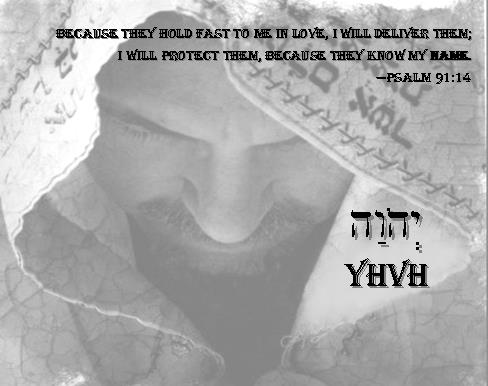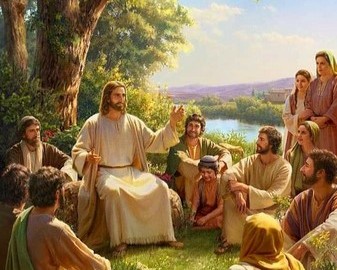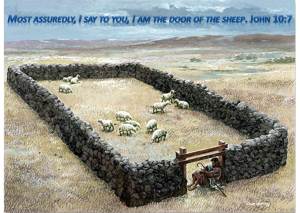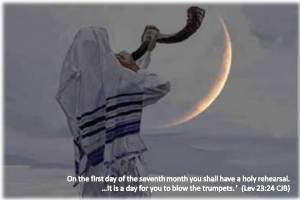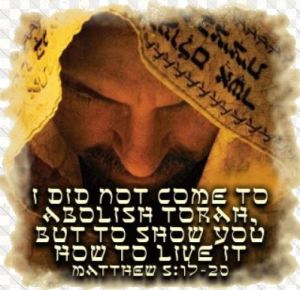In my first posting on this topic (What’s in a Name?), I established through a chain of scriptural references that God wants His Name to be known and spoken, although it has been hidden from the majority of Jews and Christians for 2,000+ years. The true pronunciation of God’s (Yehovah’s) Name was hidden before Yeshua (Jesus) came to earth the first time, as the Jewish leaders had decided it was too holy for the common people to speak. Yeshua said that one of the main reasons Abba had sent Him to Earth was to reveal the true name of the Father (Yehovah) to His disciples while He was on the earth (John 17:6).
Since there were no vowels in Hebrew scrolls at that time, there was no way to know the pronunciation of God’s Name from reading the scrolls. However, Jewish scribes painstakingly transcribed the scriptures in the 10th and 11th centuries into what are now known as the Aleppo and the Leningrad Codex. These scrolls are unique because vowel points were added so that unfamiliar words, such as God’s Name, could be pronounced properly. The image at the top of this posting contains the Hebrew letters for God’s Name, including the vowel points as found in the two Codexes mentioned above. According to 100+ instances in these two Codexes, the Name is clearly pronounced as Yehovah or Y’hovah.
What is even more crucial, though, is how we use His Name. In Zechariah 13:9, YHVH says to His people that they will call upon His Name and He will answer them. In the Aaronic blessing, Yehovah spoke to Aaron through Moses and told him what words he was to speak to the people of Israel to bless them (Num 6:23-26). Very few people know that what YHVH said in the next verse is the most important part of the blessing. He was explaining the significance of the blessing when He said: “So shall they [the priests] put My Name upon the people of Israel, and I will bless them” (Num 6:27). Each verse of the blessing contains God’s holy Name, and YHVH was saying that if they would place (speak) God’s Name over the people, He would promise to bless them.
God loves to hear His Name spoken and there are so many different ways to speak His Name: in praise and worship (Ps 8:1, 66:4, 148, etc.), in blessings (as in Num 6), in prayers (Isa 1:4, Ps 105:1) and in the joys and sorrows of everyday life (as a greeting in Ruth 2:4). There is power in God’s Name; the greatest power in all the universe. In Isa 45:22, Yehovah is telling everyone to look to Him and be saved; He is saying that He Alone is God and there is no other god. Then in the next verse (Isa 45:23) He says “That to Me every knee shall bow, every tongue shall confess.” Finally in Verse 24 He says that all Israel will glorify Yehovah as the true Creator and Redeemer God of the universe.
The power of YHVH’s Name is best seen through His attributes that are contained in His compound names in scripture. One of the most powerful is in the graphic at the beginning of this posting: “Yehovah my Miracle [YHVH Nissi]” – this illustrates that we can call on the Name of Yehovah and trust Him to work miracles in our lives, and then give glory to His Name once again when they happen. Another descriptive name for God is Yehovah Yireh (sometimes written as Jevohah Jireh). This is usually translated as “The LORD my Provider”; however, a more accurate translation is “Yehovah who sees”, meaning in essence that He not only sees and knows our needs but that He satisfies them.
The many other names for God in the scriptures powerfully illustrate YHVH’s mercy, forgiveness, and unconditional love for His people. To know God’s Name is important, but it is more relevant to experience the power and beauty of using His Name when we pray. Such prayers are like sweet fragrant incense rising up to our Father in heaven (Rev 5:8).
For instance, when we are interceding for another who is suffering from illness, we can speak His Name along with the attribute of His character that relates to healing: “Yehovah Rapha (The LORD our Healer)”. When we do this, we can sense the Holy Spirit going into action, bringing healing. In the same way, when we cry out to God that He is our Rock (Yehovah Tsuri) we feel comforted in our soul that we can lean on him as our solid Rock and He will never leave us or forsake us. Many people have experienced peace and comfort when they recite the 23rd Psalm, but when you realize that “The LORD our shepherd” is actually “Yehovah Ro’i” in Hebrew and we can call our Shepherd by His Name, then it makes Yeshua’s words in John 10 so much more personal. Yeshua said in John 10:27: “My sheep hear My voice, and I know them, and they follow Me.” (Isn’t it easier to hear His voice and discern it from all other (false) shepherds when we know His Name as well as His voice? Finally, He says: “I am the good Shepherd. The good Shepherd lays down His life for the sheep.” (John 10:11) How comforting to know that our Creator and Lord is willing to lay down His life for us (and did just that when He died on the cross)?
I will leave you with the words that Yeshua spoke to His disciples near the end of His first mission to the earth: “Peace I leave with you, My peace I give unto you; not as the world gives do I give to you. Let not your heart be troubled, neither let it be afraid.” (John 14:27) If you want to see more about the Hebrew Names for God, see this Web site (remember that “Y” is usually written as “J” in English translations): Names of God – Blue Letter Bible

